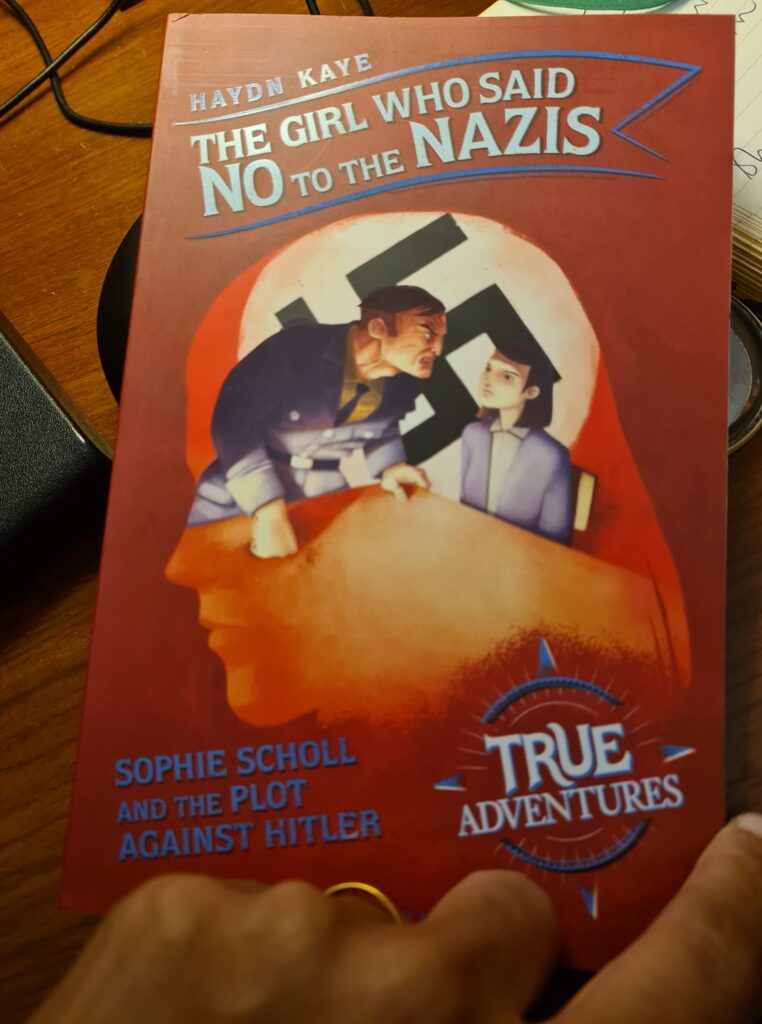“The Girl Who Said No to the Nazis: Sophie Scholl and the Plot Against Hitler” by Haydn Kaye

Selective telling of histories to children serves multiple purposes. Not least in reminding newer generations of the atrocities of the past. Mostly these are written in the hope that histories are not repeated in this cruel manner. Historical fiction is rapidly becoming a popular genre for children’s literature as it straddles that space between reading-for-lesiire and edutainment. The Girl Who Said No to the Nazis ( Pushkin Press) falls into this category as it puts the spotlight on the brave Sophie Scholl who was ultimately executed for standing up to the Nazis. Today, she and her brother, Hans, are celebrated as heroes of WW2, but at that time their well-meant bravado of creating the White Rose group cost them their lives. They were in their twenties. Sophie was 21.
Creating these stories in lands where there is political and social stability makes sense as reading these stories don’t rock one’s world. There is that comfort of knowing these incidents happened way back in the past. But this kind of a book while understandably is essential reading, is too close to comfort for many other countries. It is horribly disconcerting and worrying. It makes one ask the question — how necessary is it to share such books with the young? How much should they aware of the horrific events of the pasting? At what age is it appropriate to introduce this literature for a healthy discussion? How worrying is it for some that in their lifetime they may see some of these “historical events” actually happen in their countries, exactly as described. Or should they be kept in ignorance for a little while longer? How important are these books to trigger conversations and understand the devilish nature of a bunch of individuals that can wreak havoc upon society and unleash communal violence and pogroms, all in the name of creating a clean and pure society?
Personally I feel children should be exposed to such books but the adults immediately in their vicinity must be fully informed/equipped to have these conversations as well. Tough balancing act since it is not easy for all adults to discuss such topics clinically without letting their own biases trickle through. Or perhaps it is, since it is events in the past, but can they connect the dots to the present?
Much to think about.
27 Jan 2021
